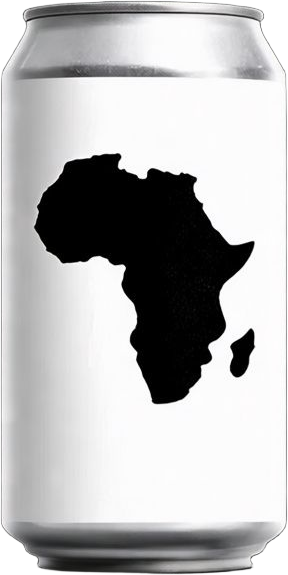Africa’s alcoholic drinks market is experiencing rapid growth, driven by a burgeoning middle class, urbanization, and a youthful population eager to explore new social experiences. While international brands dominate many urban markets, a rising number of homegrown brands are claiming their space, offering unique flavors deeply rooted in local culture and traditions.
This blog explores the key players in Africa’s alcoholic beverage industry, homegrown innovations, and the evolving packaging trends — with a specific focus on aluminum cans as the future of packaging.
The Big Players in Africa’s Alcoholic Drinks Market
Multinational companies have long had a foothold in Africa, shaping consumer preferences and setting standards for production and distribution.
• Heineken: The Dutch brewing giant has been active across the continent, investing heavily in breweries in countries like Nigeria, South Africa, and Ethiopia. Their brands include well-known names like Amstel and Tiger Beer.
• AB InBev: As the world’s largest brewer, AB InBev owns popular African brands like Castle, Carling Black Label, and Hero Lager. They have invested heavily in local production facilities, adapting their product lines to suit regional tastes.
• Diageo: Known globally for brands like Guinness, Diageo operates significant brewing operations in countries like Kenya and Nigeria. Guinness, for instance, remains a favorite among West African consumers, and Diageo’s investments in packaging reflect global trends in sustainability.
Homegrown Brands Stealing the Spotlight
While the big players may dominate, Africa is rich in local brands that are gaining prominence and redefining the alcoholic drinks landscape. These brands take pride in locally sourced ingredients, artisanal techniques, and flavors that resonate with indigenous palates.
• Chibuku (Southern Africa): Produced in countries like Zimbabwe, Zambia, and Malawi, Chibuku is a traditional sorghum beer that has made the leap from local villages to urban centers. This beer is sold in cartons and cans, with aluminum cans gaining popularity for their lightweight and easy-to-store properties.
• Tusker (Kenya): Tusker is an iconic Kenyan beer brewed by East African Breweries (a subsidiary of Diageo). Tusker has remained a strong symbol of local identity. While traditionally bottled, the trend toward aluminum cans is starting to grow, particularly in urban areas where consumers seek convenience.
• Orijin (Nigeria): A bittersweet blend of herbs and fruits, Orijin was created by Guinness Nigeria to cater to the local palate. Packaged in both glass bottles and cans, Orijin has found success among a younger audience seeking drinks that reflect their African roots.
• Senator Keg (Kenya): Senator Keg is a government-subsidized beer aimed at providing affordable, safe alcoholic beverages in Kenya. Traditionally served in kegs, the move toward canning options could help make it accessible to a broader audience.
The Packaging Revolution: Why Aluminum Cans are the Future
In the African alcoholic drinks market, packaging is evolving from traditional glass bottles to more innovative and eco-friendly alternatives. Aluminum cans are leading the charge for several reasons:
• Sustainability: Aluminum is 100% recyclable, making it an attractive option for brands looking to improve their environmental credentials. With the rise of the global sustainability movement, many African companies are shifting from plastic or glass to aluminum cans to reduce their carbon footprint.
• Lightweight and Durable: Cans are easier to transport across vast, often rugged terrains in Africa, reducing shipping costs and damage during transit. For African breweries and distilleries exporting their products to neighboring countries, cans are a logistical win.
• Affordability: In regions where production costs are a critical factor, aluminum cans are more cost-effective than glass bottles. With the rise of local can manufacturing plants in sub-Saharan Africa, more brands are looking at cans as a way to cut costs and increase profit margins.
• Consumer Appeal: Younger African consumers are more inclined to buy drinks in aluminum cans because of their portability, convenience, and modern aesthetic. This shift is particularly evident in urban areas where on-the-go consumption is common.
Glass Bottles vs. Aluminum Cans: The Shift
While glass bottles have long been the norm for alcohol packaging in Africa, aluminum cans are steadily gaining market share. Several reasons are driving this shift:
• Cost Efficiency: The production of glass requires higher energy, and with rising energy costs in many African nations, cans are becoming the cheaper alternative.
• Recycling Infrastructure: Many African nations have begun focusing on improving recycling facilities, and aluminum cans are easier and more efficient to recycle than glass.
• Consumer Preference: Cans are becoming the go-to choice for festivals, concerts, and other events due to their safety (less likely to break) and ease of use.
Challenges for Aluminum Cans in Africa
Despite the benefits, there are still hurdles that aluminum can packaging needs to overcome in Africa.
• Perception: In some rural areas, glass bottles are still seen as premium packaging, while cans are associated with cheaper products. Brands will need to invest in marketing to change these perceptions.
• Infrastructure: While can production is growing, not all countries have the necessary infrastructure to fully adopt cans over bottles, particularly in the more remote parts of the continent.
The alcoholic drinks market in Africa is dynamic, with both global giants and homegrown brands vying for consumer attention. The shift from glass to aluminum cans is accelerating as the benefits — from cost-efficiency to sustainability — become more apparent. Brands that embrace aluminum cans are poised to tap into the growing demand for eco-friendly, portable packaging, especially among younger consumers.
As African industries continue to grow, we’re likely to see more investments in can production facilities, making aluminum cans the go-to packaging solution across the continent. Brands that adapt to this trend will be at the forefront of Africa’s booming alcoholic drinks market.
Key Takeaways:
• Africa’s alcoholic drinks market is booming with both global and local players.
• Homegrown brands like Chibuku, Tusker, and Orijin are gaining prominence.
• Aluminum cans are becoming the preferred packaging due to sustainability, affordability, and consumer convenience.
• Glass bottles still dominate in some regions, but the shift to cans is undeniable.

Leave a Reply